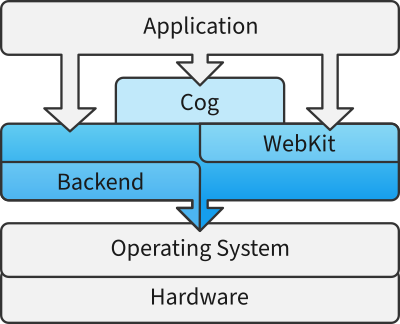A quick introduction to the WPE WebKit Project

As mentioned in a previous post here and also in the related post from the WPE WebKit blog, the WPE project is a port of WebKit which, at the time of this writing, is responsible for bringing WebKit to millions of embedded devices around the world: you can find it in set-top-boxes, cars, cooking machines, and smart home appliances, to name a few examples.
While there is already some information about the design and architecture of WPE on the wpewebkit.org website, the team behind WPE at Igalia has recently started a series of blog posts to explain different aspects of WPE in a more personal way by having different members of the team talk about specific areas they are most familiar with.
As a result, the first installment of the series is a high-level overview of the WPE project where Claudio Saavedra talks briefly about the architecture of the project and how it’s designed in terms of several modular components that enable integrators to quickly build performant, lightweight, and reliable Web browsers optimized for their specific devices in a flexible way.
Therefore, we would like to invite you to check out his blog post for a better idea of how the different pieces of the WPE WebKit project fit together and how the project is perfect to accomodate different needs and use cases. This is very important not only to the world of embedded devices, which benefits directly of this flexibility, but also to the whole WebKit ecosystem in general by providing a broader use base for our beloved Web engine.
Last but not least, feel free to check regularly the WPE WebKit blog for new installments of the series, where articles on different topics will be published in the future.